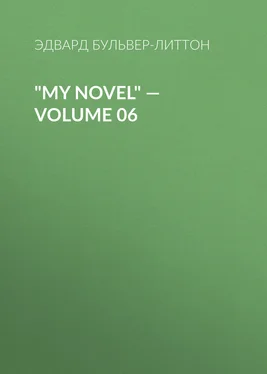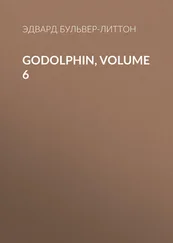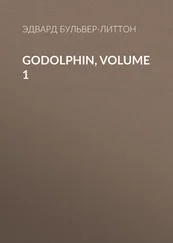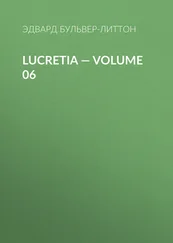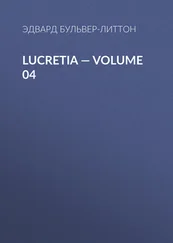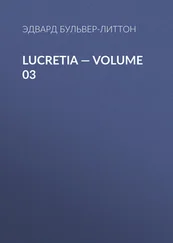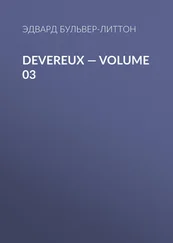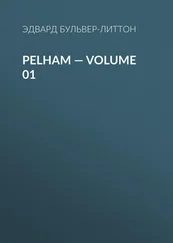Эдвард Бульвер-Литтон - My Novel — Volume 06
Здесь есть возможность читать онлайн «Эдвард Бульвер-Литтон - My Novel — Volume 06» — ознакомительный отрывок электронной книги совершенно бесплатно, а после прочтения отрывка купить полную версию. В некоторых случаях можно слушать аудио, скачать через торрент в формате fb2 и присутствует краткое содержание. Жанр: foreign_prose, literature_19, Европейская старинная литература, foreign_antique, на английском языке. Описание произведения, (предисловие) а так же отзывы посетителей доступны на портале библиотеки ЛибКат.
- Название:My Novel — Volume 06
- Автор:
- Жанр:
- Год:неизвестен
- ISBN:нет данных
- Рейтинг книги:4 / 5. Голосов: 1
-
Избранное:Добавить в избранное
- Отзывы:
-
Ваша оценка:
- 80
- 1
- 2
- 3
- 4
- 5
My Novel — Volume 06: краткое содержание, описание и аннотация
Предлагаем к чтению аннотацию, описание, краткое содержание или предисловие (зависит от того, что написал сам автор книги «My Novel — Volume 06»). Если вы не нашли необходимую информацию о книге — напишите в комментариях, мы постараемся отыскать её.
My Novel — Volume 06 — читать онлайн ознакомительный отрывок
Ниже представлен текст книги, разбитый по страницам. Система сохранения места последней прочитанной страницы, позволяет с удобством читать онлайн бесплатно книгу «My Novel — Volume 06», без необходимости каждый раз заново искать на чём Вы остановились. Поставьте закладку, и сможете в любой момент перейти на страницу, на которой закончили чтение.
Интервал:
Закладка:
"What other doctor?"
"Oh, a very good gentleman, who got out with Mr. Digby when he was taken ill, and stayed till the next morning; and our doctor says his name is Morgan, and he lives in Lunnou, and is a homy—something."
"Homicide," suggested Leonard, ignorantly.
"Ah, homicide; something like that, only a deal longer and worse. But he left some of the tiniest little balls you ever see, sir, to give the child; but, bless you, they did her no good,—how should they?"
"Tiny balls, oh—homoeopathist—I understand. And the doctor was kind to her; perhaps he may help her. Have you written to him?"
"But we don't know his address, and Lunnon is a vast place, sir."
"I am going to London and will find it out."
"Ah, sir, you seem very kind; and sin' she must go to Lunnon (for what can we do with her here?—she's too genteel for service), I wish she was going with you."
"With me!" said Leonard, startled,—"with me! Well, why not?"
"I am sure she comes of good blood, sir. You would have known her father was quite the gentleman, only to see him die, sir. He went off so kind and civil like, as if he was ashamed to give so much trouble,—quite a gentleman, if ever there was one. And so are you, sir, I'm sure," said the land lady, courtesying; "I know what gentlefolk be. I've been a housekeeper in the first of families in this very shire, sir, though I can't say I've served in Lunnon; and so, as gentlefolks know each other, I 've no doubt you could find out her relations. Dear, dear! Coming, coming!"
Here there were loud cries for the hostess, and she hurried away. The farmers and drovers were beginning to depart, and their bills were to be made out and paid. Leonard saw his hostess no more that night. The last Hip-hip-hurrah was heard,—some toast, perhaps to the health of the county members,—and the chamber of woe beside Leonard's rattled with the shout. By and by, silence gradually succeeded the various dissonant sounds below. The carts and gigs rolled away; the clatter of hoofs on the road ceased; there was then a dumb dull sound as of locking-up, and low, humming voices below, and footsteps mounting the stairs to bed, with now and then a drunken hiccough or maudlin laugh, as some conquered votary of Bacchus was fairly carried up to his domicile.
All, then, at last was silent, just as the clock from the church sounded the stroke of eleven.
Leonard, meanwhile, had been looking over his manuscripts. There was first a project for an improvement on the steam-engine,—a project that had long lain in his mind, begun with the first knowledge of mechanics that he had gleaned from his purchases of the tinker. He put that aside now,—it required too great an effort of the reasoning faculty to re-examine.
He glanced less hastily over a collection of essays on various subjects, —some that he thought indifferent, some that he thought good. He then lingered over a collection of verses written in his best hand with loving care,—verses first inspired by his perusal of Nora's melancholy memorials. These verses were as a diary of his heart and his fancy,— those deep, unwitnessed struggles which the boyhood of all more thoughtful natures has passed in its bright yet murky storm of the cloud and the lightning-flash, though but few boys pause to record the crisis from which slowly emerges Man. And these first desultory grapplings with the fugitive airy images that flit through the dim chambers of the brain had become with each effort more sustained and vigorous, till the phantoms were spelled, the flying ones arrested, the Immaterial seized, and clothed with Form. Gazing on his last effort, Leonard felt that there at length spoke forth the poet. It was a work which though as yet but half completed, came from a strong hand; not that shadow trembling on unsteady waters, which is but the pale reflex and imitation of some bright mind, sphered out of reach and afar, but an original substance,— a life, a thing of the Creative Faculty,—breathing back already the breath it had received. This work had paused during Leonard's residence with Mr. Avenel, or had only now and then, in stealth, and at night, received a rare touch. Now, as with a fresh eye he reperused it, and with that strange, innocent admiration, not of self—for a man's work is not, alas! himself,—it is the beautified and idealized essence, extracted he knows not how from his own human elements of clay; admiration known but to poets,—their purest delight, often their sole reward. And then with a warmer and more earthly beat of his full heart, he rushed in fancy to the Great City, where all rivers of fame meet, but not to be merged and lost, sallying forth again, individualized and separate, to flow through that one vast Thought of God which we call THE WORLD.
He put up his papers; and opened his window, as was his ordinary custom, before he retired to rest,—for he had many odd habits; and he loved to look out into the night when he prayed. His soul seemed to escape from the body—to mount on the air, to gain more rapid access to the far Throne in the Infinite—when his breath went forth among the winds, and his eyes rested fixed on the stars of heaven.
So the boy prayed silently; and after his prayer he was about, lingeringly, to close the lattice, when he heard distinctly sobs close at hand. He paused, and held his breath, then looked gently out; the casement next his own was also open. Someone was also at watch by that casement,—perhaps also praying. He listened yet more intently, and caught, soft and low, the words, "Father, Father, do you hear me now?"
CHAPTER VI
Leonard opened his door and stole towards that of the room adjoining; for his first natural impulse had been to enter and console. But when his touch was on the handle, he drew back. Child though the mourner was, her sorrows were rendered yet more sacred from intrusion by her sex. Something, he knew not what, in his young ignorance, withheld him from the threshold. To have crossed it then would have seemed to him profanation. So he returned, and for hours yet he occasionally heard the sobs, till they died away, and childhood wept itself to sleep.
But the next morning, when he heard his neighbour astir, he knocked gently at her door: there was no answer. He entered softly, and saw her seated very listlessly in the centre of the room,—as if it had no familiar nook or corner as the rooms of home have, her hands drooping on her lap, and her eyes gazing desolately on the floor. Then he approached and spoke to her.
Helen was very subdued, and very silent. Her tears seemed dried up; and it was long before she gave sign or token that she heeded him. At length, however, he gradually succeeded in rousing her interest; and the first symptom of his success was in the quiver of her lip, and the overflow of her downcast eyes.
By little and little he wormed himself into her confidence; and she told him in broken whispers her simple story. But what moved him the most was, that beyond her sense of loneliness she did not seem to feel her own unprotected state. She mourned the object she had nursed and heeded and cherished, for she had been rather the protectress than the protected to the helpless dead. He could not gain from her any more satisfactory information than the landlady had already imparted, as to her friends and prospects; but she permitted him passively to look among the effects her father had left, save only that, if his hand touched something that seemed to her associations especially holy, she waved him back, or drew it quickly away. There were many bills receipted in the name of Captain Digby, old yellow faded music-scores for the flute, extracts of Parts from Prompt Books, gay parts of lively comedies, in which heroes have so noble a contempt for money,—fit heroes for a Sheridan and a Farquhar; close by these were several pawnbroker's tickets; and, not arrayed smoothly, but crumpled up, as if with an indignant nervous clutch of the helpless hands, some two or three letters. He asked Helen's permission to glance at these, for they might afford a clew to friends. Helen gave the permission by a silent bend of the head. The letters, however, were but short and freezing answers from what appeared to be distant connections or former friends, or persons to whom the deceased had applied for some situation. They were all very disheartening in their tone. Leonard next endeavoured to refresh Helen's memory as to the name of the nobleman which had been last on her father's lips; but there he failed wholly. For it may be remembered that Lord L'Estrange, when he pressed his loan on Mr. Digby, and subsequently told that gentleman to address him at Mr. Egerton's, had, from a natural delicacy, sent the child on, that she might not witness the charity bestowed on the father; and Helen said truly that Mr. Digby had sunk latterly into an habitual silence on all his affairs. She might have heard her father mention the name, but she had not treasured it up; all she could say was, that she should know the stranger again if she met him, and his dog too. Seeing that the child had grown calm, Leonard was then going to leave the room, in order to confer with the hostess, when she rose suddenly, though noiselessly, and put her little hand in his, as if to detain him. She did not say a word; the action said all,—said, "Do not desert me." And Leonard's heart rushed to his lips, and he answered to the action, as he bent down, and kissed her cheek, "Orphan, will you go with me? We have one Father yet to both of us, and He will guide us on earth. I am fatherless like you." She raised her eyes to his, looked at him long, and then leaned her head confidingly on his strong young shoulder.
Читать дальшеИнтервал:
Закладка:
Похожие книги на «My Novel — Volume 06»
Представляем Вашему вниманию похожие книги на «My Novel — Volume 06» списком для выбора. Мы отобрали схожую по названию и смыслу литературу в надежде предоставить читателям больше вариантов отыскать новые, интересные, ещё непрочитанные произведения.
Обсуждение, отзывы о книге «My Novel — Volume 06» и просто собственные мнения читателей. Оставьте ваши комментарии, напишите, что Вы думаете о произведении, его смысле или главных героях. Укажите что конкретно понравилось, а что нет, и почему Вы так считаете.
